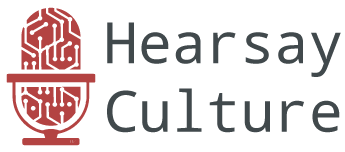I reproduce below my notes from a number of presentations. Alas, I’ve been pulled in several directions the last few days so I produce these notes on an “as-is” basis; I hope that you find them useful.
A young boy who misses his dad awaits, so I must sign off from IPSC here. I’ve been impressed with the quality and breadth of the in-progress work that I’ve seen here, and as always am inspired by my colleagues. They are also an exceptionally nice bunch of people with whom to spend a few days, and I’m lucky to have such colleagues. Thanks to DePaul for hosting the event (I really need to spend more time in Chicago), and I look forward to next year’s conference at Stanford!
Elizabeth Townsend Gard, Tulane — focus on difficulty of determining copyright duration for older works. Vera Brittain — what is the status of this UK author’s work? The duration regime is insane and very difficult to ascertain, esp. with foreign works. When you get into the details of copyright, you find that duration is quite long.
Assaf Jacob, Herzliya Radzyner ScHool of Law — Reconsidering Work Made for Hire Doctrine — when deciding c ownership issues that are based on work made for hire and defining employee and scope of employment, the USSC has hewn too close to tort law and away from copyright. Why did USSC adopt agency test? unformity, certainty, predictability. Shape in light of an economic paradigm. Incentives and access. During c term: physical accessibility, ease of locating and contacting, transaction costs; post c protection: term of protection, ease of access. Reason that the status of the work cannot change is because of interest of third parties.
Mark Schultz, SIU: Can Live Performance Save Rock and Roll? If there are rising costs of the production of rock music, why is there live music? Relying on live music for revenue and survival is possible, but trouble is that musicians will be in a footrace with rising costs of live performance. Tech plus c = opt out of the footrace.
Miriam Britton, Boalt — Many Patents on Information — facts, abstract ideas are expanding — early law did not allow info to be patentable b/c not machine, etc. even in 20th century, they served as info gatekeepers. abstract ideas, natural phenomena, laws of nature not patentable in 1850s — mental steps, printed matter, business methods — why exclude info? major reason is that they are fundamental building blocks for creation of new knowledge, need for application not apparent, can’t be propertized, no need for incentives — State Street Bank case allowed for expansion of patentability to business methods. Why focus on invention’s end result? Court may revisit patentable subject matter. CAFC may develop alternatives: Patent law not designed to acomodate inforamtional inventions, resurrecting and definig “technical arts” test.
Mary Wong, Franklin Pierce — Re-examining basic concepts: do we want to protect user-generated content (UGC)? Can some form of UGC move beyond fair use and become user rights? Does international law need to be changed? Does “recast, transform, adapt” = originality = transformative? Does preparing a derivative work require copying (incorporation) of the underlying work? Does infringing work need to be fixed? Concl: fair use excuses infringement of the reproduction/derivative work right, an excused, transformative derivative work is original but c only if also fixed, excused, non-trans derivativ work is not c because it is not original, regardless of whether its fixed. Gowers Review: US fair use broader than UK fair dealing. UK and Canada do not have broad derivate works rights. US law may find some UGC non-infringing. Fair use is carrying too heavy a burden in US, so look to authorship. When UGC contributes to goals of c, should be protected.
Ned Snow, U. Ark. — “Copy-speech” — Strict liability for unprotected speech violates First Amendment because it chills some legit speech, and “copy-speech” (i.e., public domain, fair use and permission) is impacted. Chilling effect of strict liability has spillover effect.












